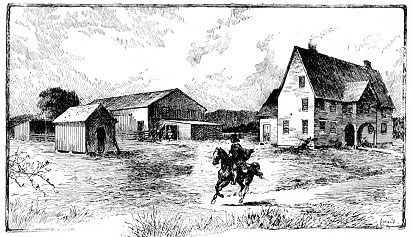|
Springfield, Massachusetts, by Clarence E. Blake, Ph.D., continued.

William Pynchon
Hood gossip and meddlesomeness. Parsons was a careless-talking lawless fellow and had made ungentlemanly remarks to one or two of the neighbors. These remarks, with his mysterious way of making them were forced into an unnatural relation with some real or imaginary occurrences, and poor Parsons was made out to be an emissary of the devil. His sensitive wife could not bear the injustice and lost her reason. Then she, too, became the subjet of remark. Next, insanity led her to witness against her husband; then against herself as a witch; and finally she confessed that she had murdered her child, who had died the year before. Poor Mary was condemned to be hanged for murder, though acquitted of the charge of witchcraft. But death interfered and cheated the gallows of its victim. Hugh was convicted and sentenced, but in some way escaped execution.

The Old Pynchon House
Note: The pictures of the Pynchon House, the old Parsons Tavern, and the Old Elm in this article are from History of Springfield, by Mason A. Green and used here by the courtesy of the publishers, C.A. Nichols & Co.
-- Page 2 --
© Laurel O'Donnell 1998 - 2005, all rights reserved
This document may be downloaded for personal non-commerical use only and should not be reproduced or distributed without permission. |